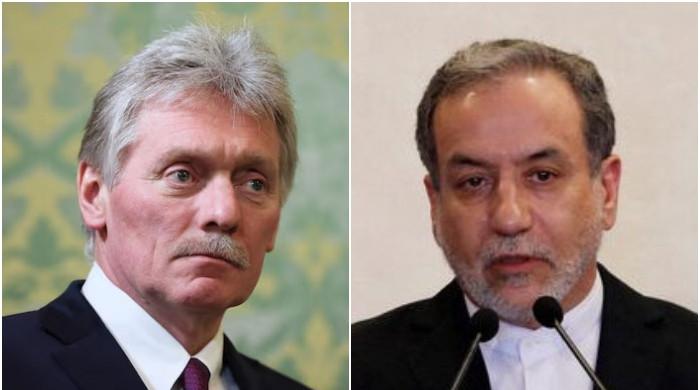Russia and Iran Advocate for De-escalation Between Pakistan and India
Amid rising tensions between Pakistan and India, Russia and Iran have appealed for de-escalation. The tensions follow a deadly attack last month on tourists in Indian Illegally Occupied Jammu and Kashmir (IIOJK).
New Delhi has accused Islamabad of involvement in the April 22 attack in Pahalgam, which resulted in 26 fatalities. Islamabad has refuted these accusations, calling them baseless, which has led to diplomatic exchanges and strong rhetoric.
Islamabad asserts it possesses “credible intelligence” indicating potential military action by India, heightening the risk of conflict between the two nations.
Kremlin representative Dmitry Peskov conveyed to reporters, “We are hopeful that the involved parties will adopt measures to alleviate tensions,” further stating, “We are closely monitoring the tense situation along the border with considerable concern.”
During a recent telephone conversation with Indian Prime Minister Narendra Modi, Russian President Vladimir Putin affirmed that the “uniquely privileged partnership” between Moscow and Delhi “remains unaffected by external factors and continues its dynamic progression across various domains,” according to a statement released by the Kremlin.
Last week, Moscow expressed its readiness to mediate, following discussions between Russian Foreign Minister Sergei Lavrov and representatives from both countries.
Peskov stated, “India holds the status of our strategic ally, and Pakistan is also a partner. We deeply value our connections with both Delhi and Islamabad.”
During his arrival in Islamabad for a one-day visit, Iran’s foreign minister called on India and Pakistan to exercise moderation.
Iranian Foreign Minister Abbas Araqchi stated upon his arrival in Islamabad, “Our objective is de-escalation, and we urge all stakeholders to show restraint and refrain from escalating tensions.”
Iranian Ambassador Reza Amiri Moghadam informed state media that this issue would be addressed, highlighting Iran’s strong relationships with both countries.
Araqchi is scheduled to visit Delhi on Thursday, as announced by the Iranian embassy in India on X. It remains uncertain whether these visits were scheduled prior to the recent increase in tension.
Pakistan’s foreign office released a statement noting, “The discussions will encompass an exchange of perspectives on regional and global developments.”
India’s foreign ministry has not yet provided a response to requests for comments. It has previously dismissed any third-party involvement in matters concerning Kashmir.
Since the attack, Islamabad has engaged with numerous global capitals to address the situation, most recently through a phone conversation between Foreign Minister Ishaq Dar and his Russian counterpart, Sergey Lavrov.
The foreign office released a statement on Sunday stating, “Lavrov voiced his apprehension regarding the current circumstances and emphasized the importance of diplomatic solutions to resolve conflicts,” further mentioning his appeal for both sides to maintain restraint and prevent escalation.
Islamabad has also directed its envoy to the United Nations to request a UN Security Council meeting to inform the council about what it describes as India’s “aggressive actions” that threaten peace and security.



Comments (0)
No comments yet. Be the first to comment!
Leave a Comment